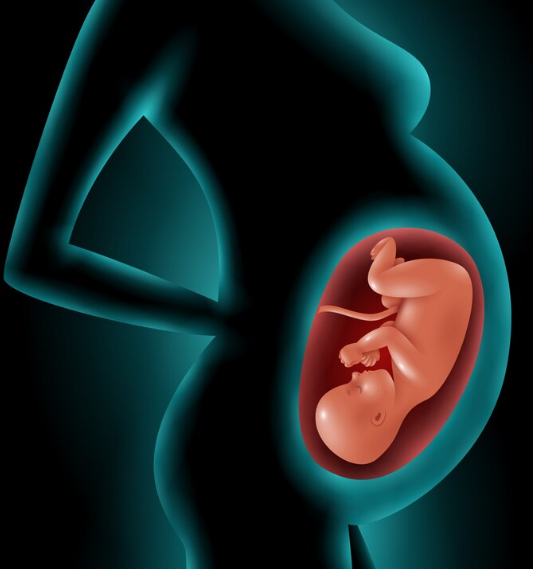Navigating the Unknown
Bringing a new life into the world is an extraordinary journey filled with anticipation, joy, and sometimes, unexpected twists and turns. While pregnancy is often portrayed as a time of glowing health and happiness, the reality is that it can also come with its share of challenges. One such challenge that many women may face is experiencing bleeding during pregnancy. In this article, we will delve into the reasons behind this phenomenon, when it might occur, and what steps expectant mothers can take if they find themselves in this situation.
Table of Contents
Understanding Bleeding During Pregnancy
Bleeding during pregnancy can be a frightening experience for any expectant mother. It is essential to understand that while bleeding is never considered “normal” during pregnancy, it doesn’t always signify a serious problem. In fact, studies show that around 20-30% of women experience some form of bleeding during the first trimester, and a smaller percentage may also experience bleeding later in pregnancy.
Causes of Bleeding During Pregnancy
1. Implantation Bleeding
One common cause of bleeding during early pregnancy is implantation bleeding. This occurs when the fertilized egg attaches itself to the uterine lining, typically around 6-12 days after conception. Implantation bleeding is usually light and may be mistaken for a regular menstrual period by some women.

2. Hormonal Changes
Pregnancy triggers significant hormonal changes in a woman’s body, which can sometimes lead to spotting or light bleeding. Fluctuations in hormone levels, particularly estrogen and progesterone, can affect the stability of the uterine lining and result in minor bleeding.
3. Cervical Changes
During pregnancy, the cervix goes through different changes to plan for labor. Increased blood flow to the cervix and the softening of the cervical tissues can sometimes cause bleeding, especially after sexual intercourse or a pelvic exam.
4. Miscarriage
Unfortunately, bleeding during pregnancy can also be a sign of a miscarriage, particularly if it is accompanied by cramping or severe abdominal pain. Miscarriage, or the loss of a pregnancy before the 20th week, can occur due to various factors, including genetic abnormalities or uterine abnormalities.

At times, draining during pregnancy might demonstrate an ectopic pregnancy, where the treated egg inserts outside the uterus, ordinarily in the fallopian tube. Ectopic pregnancies are not viable and can pose serious risks to the mother if left untreated.
When to Seek Medical Attention
While some instances of bleeding during pregnancy may be benign, it is crucial for expectant mothers to seek medical attention promptly to rule out any serious complications. It is prescribed to contact a medical services supplier if:
- Bleeding is heavy or accompanied by severe abdominal pain.
- Bleeding persists or worsens over time.
- Bleeding is accompanied by other symptoms such as fever, dizziness, or fainting.
- There is a past filled with confusions in past pregnancies.
Taking Care of Yourself During Pregnancy
In addition to seeking medical attention when experiencing bleeding during pregnancy, it’s essential for expectant mothers to prioritize self-care and well-being throughout their pregnancy journey. Here are some tips to help ensure a healthy and comfortable pregnancy:
1. Attend Regular Prenatal Checkups
Regular prenatal checkups are crucial for monitoring the health and development of both the mother and the baby. These appointments allow healthcare providers to address any concerns or complications promptly and provide guidance on nutrition, exercise, and other aspects of prenatal care.

2. Maintain a Healthy Lifestyle
Eating a balanced diet, staying hydrated, and getting regular exercise are essential components of a healthy pregnancy. Avoiding harmful substances such as alcohol, tobacco, and illicit drugs is also important for the well-being of both the mother and the baby.
3. Manage Stress
Pregnancy can be a time of heightened emotions and stress, so it’s essential to find healthy ways to manage stress and promote relaxation. Practicing mindfulness, deep breathing exercises, and engaging in activities that bring joy and fulfillment can help reduce stress levels and promote overall well-being.
4. Educate Yourself
Knowledge is power with regards to pregnancy and labor. Take the time to educate yourself about the various stages of pregnancy, common symptoms and discomforts, childbirth options, and postpartum care. Attend childbirth classes, read books, and consult reliable sources of information to empower yourself with the knowledge you need to make informed decisions about your pregnancy and birth plan.
5. Seek Support
Pregnancy can be both an exciting and challenging time, so don’t hesitate to lean on your support network for guidance and encouragement. Whether it’s your partner, family members, friends, or healthcare providers, having a strong support system can make a significant difference in navigating the ups and downs of pregnancy.
Embracing the Journey
Despite the uncertainties and challenges that may arise during pregnancy, it’s essential to remember that it is also a time of profound transformation and growth. Embrace the journey, cherish the moments of connection with your growing baby, and trust in your body’s incredible ability to nurture and sustain life.
By staying informed, seeking support, and prioritizing self-care, expectant mothers can navigate the unknowns of pregnancy with confidence and grace. Remember, each pregnancy journey is unique, and no matter what challenges may arise, you are not alone. Together, we can navigate the twists and turns of pregnancy and celebrate the miracle of life every step of the way.
Conclusion
In conclusion, while bleeding during pregnancy can be alarming, it is not always a cause for panic. Understanding the potential causes and knowing when to seek medical attention are essential for ensuring the health and well-being of both the mother and the baby. By staying informed and proactive, expectant mothers can navigate the unknowns of pregnancy with confidence and peace of mind. Remember, every pregnancy journey is unique, and seeking support from healthcare professionals and loved ones can make all the difference along the way.

10 Proven Benefits of Bananas for Health and Well-being
Bananas are known for their natural sweetness, ease of peeling and rich nutrition. This makes them one of the most commonly consumed fruits in the world. Though bananas originated in Southeast Asia, they are now grown and consumed all over the world. Bananas are eaten by people of all ages

Disease X: The Next Pandemic?
Emerging infectious diseases pose one of the greatest threats to human health and global stability. One of them, “Disease X” has intrigued scientists and WHO, as it represents the potential for an unknown disease to spark the next pandemic. Table of Contents Introduction Disease X is not a specific disease

The Remarkable Benefits of Eating Acorn Squash in Winter
Acorn squash has all the qualities that make it special. Winter calls for warmth, comfort, and nutrition, and acorn squash provides all of these. This vegetable is not just delicious but also has a lot of health benefits & it’s a perfect choice for winter meals. In this article, we

Omega-3 Fatty Acids
Omega-3 fatty acids play a very important role in the nutrients needed to maintain overall health. As people are getting to know about it, its popularity is increasing day-by-day. These fats play a very important role in brain functioning, heart health & reducing inflammation. But what exactly is this omega-3
Frequently Asked Questions (FAQ’S)
Bleeding during pregnancy can be caused by various factors, including implantation bleeding, hormonal changes, cervical changes, miscarriage, and ectopic pregnancy.
While bleeding during pregnancy is not considered “normal,” it can be common, particularly during the first trimester. However, any bleeding during pregnancy should be evaluated by a healthcare provider to rule out potential complications.
Studies suggest that around 20-30% of women experience some form of bleeding during the first trimester of pregnancy. A smaller percentage may also experience bleeding later in pregnancy.
It is essential to contact your healthcare provider immediately if you experience any bleeding during pregnancy. Your provider can evaluate the severity and potential causes of the bleeding and recommend appropriate next steps.
Warning signs of a miscarriage may include heavy bleeding, severe abdominal pain or cramping, passing tissue or clots, and a sudden decrease in pregnancy symptoms. On the off chance that you experience any of these side effects, look for clinical consideration immediately.
In some cases, bleeding during pregnancy may indicate a potential complication that could affect the health of the baby. However, not all instances of bleeding pose a threat to the baby. It is essential to consult with a healthcare provider for proper evaluation and guidance.
Diagnosis and treatment for bleeding during pregnancy depend on the underlying cause and severity of the bleeding. Healthcare providers may perform a physical examination, ultrasound, and other diagnostic tests to determine the cause of the bleeding and recommend appropriate treatment options.
While not all instances of bleeding during pregnancy are preventable, taking good care of your health, attending regular prenatal checkups, and avoiding activities or behaviors that may increase the risk of complications can help minimize the likelihood of experiencing bleeding during pregnancy.
If you have any concerns or questions about bleeding during pregnancy, do not hesitate to reach out to your healthcare provider for guidance and support. Your provider can offer personalized advice and address any concerns you may have.
While bleeding during pregnancy should always be evaluated by a healthcare provider, it does not always indicate a serious problem. In some cases, bleeding may be harmless or minor. However, it is essential to seek medical attention to rule out potential complications and ensure the health and well-being of both the mother and the baby.